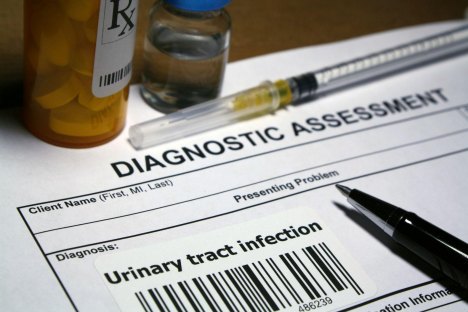Blog
How to treat cystitis

How to get rid of cystitis
As previously mentioned, cystitis occurs in a number of different forms. Mild cases of cystitis – typically those caused by third party chemicals found in drugs and hygiene products, for example – may clear up of their own accord after a few days. On the other hand, more severe cases – usually those caused by a bacterial infection – may require medical attention and prescription antibiotics. Below we take a look at some of the best ways to get rid of cystitis, including home treatments and prescription drugs. We will also explore whether or not surgery is ever used to treat recurring cystitis.
How to help cystitis at home
If you have experienced cystitis in the past and do not feel like you need to see a GP immediately upon the onset of symptoms, there are a few ways to treat mild forms of the condition and relieve symptoms at home. Although you should always seek professional medical advice if symptoms persist for more than three days, or you are experiencing extreme symptoms, trying the following home treatments is always a good starting point when cystitis strikes.
● Take painkillers
Over-the-counter painkillers like ibuprofen and paracetamol will not be able to cure cases of cystitis caused by bacterial infection, however, they can help to ease the pain of cystitis symptoms. If you have a mild case, this pain relief may be all you need while the condition clears up naturally. As always, be sure to read the medicine information leaflet before taking any over-the-counter medicines and check with a pharmacist if you are not sure if the drug is suitable for you.
● Stay hydrated
Although this is important generally, drinking plenty of water and staying hydrated can help to ‘flush out’ your bladder infection. This can also help to relieve mild fevers caused by urinary tract infections (UTIs).
● Consume probiotics
Consumed through food or supplements, probiotics are microorganisms that can improve gut health, strengthen the immune system and even reduce the risk of UTIs. Probiotics can be found in purposely fermented foods such as probiotic yoghurt, kefir and kombucha tea.
● Don’t have sex
Penetrative sex can exacerbate urinary tract irritation which in turn can make symptoms of cystits worse. For this reason, it’s a good idea to wait until all symptoms have cleared up before having sex.
● Drink cranberry juice
Although there is no real scientific evidence to suggest this is effective in treating cystitis, many people believe that drinking cranberry juice can help relieve symptoms and soothe bladder inflammation. This is because cranberry juice has the ability to lower the acidity of your urine. As it can’t hurt, it’s certainly worth a try.
Cystitis medication
You are advised to see a GP or speak to a qualified healthcare professional if any of the following apply:
● The symptoms have not improved within three days.
● The symptoms include blood in your urine, a high fever or stabbing pains in your side. ● You are getting cystitis very frequently.
● You are pregnant.
● You are a man and are experiencing symptoms of cystitis.
This is because under these circumstances, bouts of cystitis may worsen and lead to more serious health issues, and a medical professional may decide that a course of antibiotics is needed.
Typically, the first antibiotic treatments prescribed for uncomplicated acute cystitis are nitrofurantoin or trimethoprim. These antibiotics, which come in tablet form, are prescribed for five, seven or 10 days and usually get to work quickly, effectively relieving symptoms and fighting infection. Although fairly uncommon, some people do experience mild side effects from antibiotics of this nature. These include feeling nauseous, skin rashes, stomach ache and diarrhoea.
Bladder surgery for cystitis
Surgery is very rarely used to treat cystitis as the various surgical options cannot guarantee symptoms of chronic cystitis or interstitial cystitis will be fully relieved. It is thought bladder surgery may also simply lead to other complications down the line. Different surgery options may be discussed in very severe cases, however only if extreme symptoms are impacting a patient’s quality of life and all other treatments have been tried and failed.
How to prevent cystitis
Although cystitis cannot always be prevented, especially if your body reacts to a new medication or a hygiene product you have not tried before, there are a number of simple things you can do to reduce the chances of picking up cystitis. These include:
● Drinking plenty of water and staying hydrated, especially if you are also currently going through a round of chemotherapy or radiation therapy.
● Going to the toilet as soon as possible. If you feel the urge to urinate, go at the soonest possible opportunity. Delaying using the toilet can cause bladder irritation. ● Rather than baths, take showers. Those susceptible to infections of this kind are less at risk when showering when compared to sitting in a bathtub.
● When washing, gently clean the skin around the vagina and anus. Washing too vigorously or using heavily fragranced soaps may serve to further irritate these areas.
● Wipe from front to back after going to the toilet. This reduces the amount of harmful bacteria from the anal region from coming into contact with the urethra.
● Urinate as soon as possible after sex. This helps to flush bacteria out, protecting your urethra.
